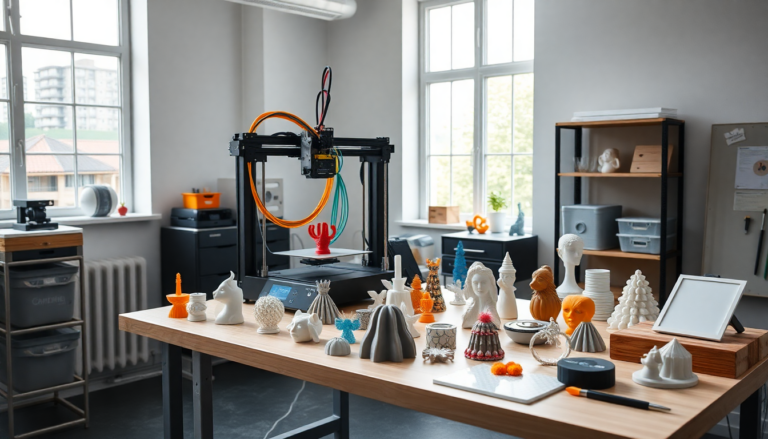Argomenti trattati
The landscape of 3D printing is changing rapidly, and so are the platforms that support this innovative technology. Recently, Etsy—a well-known marketplace for handmade and unique items—announced a policy shift that has raised eyebrows among sellers, especially those involved in 3D printing. What does this mean for creators on Etsy? And what alternatives are emerging in response? Let’s dive into the implications of Etsy’s new guidelines and explore options like MyMiniFactory’s Premium Merchant Program, designed to assist creators navigating this evolving market.
Etsy’s Policy Shift: A Closer Look
In a surprising twist, Etsy has revised its creative policy to limit the sale of 3D-printed items on its platform. The new rules specify that all 3D-printed products must be designed and created by the sellers themselves. This change could potentially cut out a large number of 3D-printed goods that many sellers typically source from professional designers or print farms. Understandably, this has raised concerns among Etsy shop owners. Despite numerous inquiries from creators and plenty of online chatter, Etsy has largely kept quiet, leaving sellers in a state of uncertainty.
With limited support channels available, many shop owners have expressed their frustration. The lack of direct communication methods—such as a dedicated phone line or email address—has only added to their woes. Consequently, sellers have turned to online forums to voice their concerns and seek clarity on what these policy changes really mean. Here’s a question for you: Should non-original 3D prints still be allowed on the platform? Opinions are split; some believe they should be, while others think they’re now strictly off-limits. After weeks of ambiguity, Etsy’s silence has left many creators feeling unsupported and anxious about their futures.
The Emergence of MyMiniFactory’s Solution
In light of the challenges presented by Etsy’s policy changes, MyMiniFactory (MMF) has stepped up with a new initiative aimed at supporting 3D printing sellers. Their Premium Merchant Program allows creators to sell physical 3D prints while complying with the new Etsy guidelines. For a monthly fee of $25, sellers can become Verified Premium Merchants, unlocking a range of benefits including a Verified Merchant Badge, increased visibility on MMF’s Merchant Map, and promotional discounts.
This initiative seeks to position MMF as a strong alternative for sellers feeling sidelined by Etsy’s recent changes. Focused on decentralized manufacturing, MMF aims to empower creators and foster a supportive environment for 3D printing businesses. With over a decade of experience, MMF primarily serves as a marketplace for professionally designed digital models, catering to various applications like tabletop gaming, toys, and home decor. It’s intriguing to consider: can MMF truly rival Etsy’s established presence?
Challenges and Future Considerations
While MMF’s Premium Merchant Program offers promising opportunities, it’s not without its challenges. To ensure compliance, MMF requires sellers to obtain commercial licenses through their “Tribes” system. This adds a layer of complexity since creators often acquire licenses from various platforms, including Patreon and Printables, which are direct competitors to MMF’s offerings.
Moreover, skepticism remains about MMF’s ability to match the sales volume that Etsy has cultivated over the years. Etsy has built a strong reputation as the go-to marketplace for unique and handcrafted items, making it tough for newer platforms to attract both sellers and buyers. The trust and brand recognition Etsy has established are formidable barriers for emerging alternatives.
As the 3D printing market continues to evolve, it’s essential for both sellers and platforms to adapt to shifting consumer preferences and regulatory changes. The future of 3D printing sales may depend heavily on how well platforms like MyMiniFactory can provide value and support to creators while navigating the complexities introduced by policy shifts in established marketplaces. What do you think? Will MMF emerge as a viable competitor, or will Etsy maintain its dominance in the 3D printing space?

